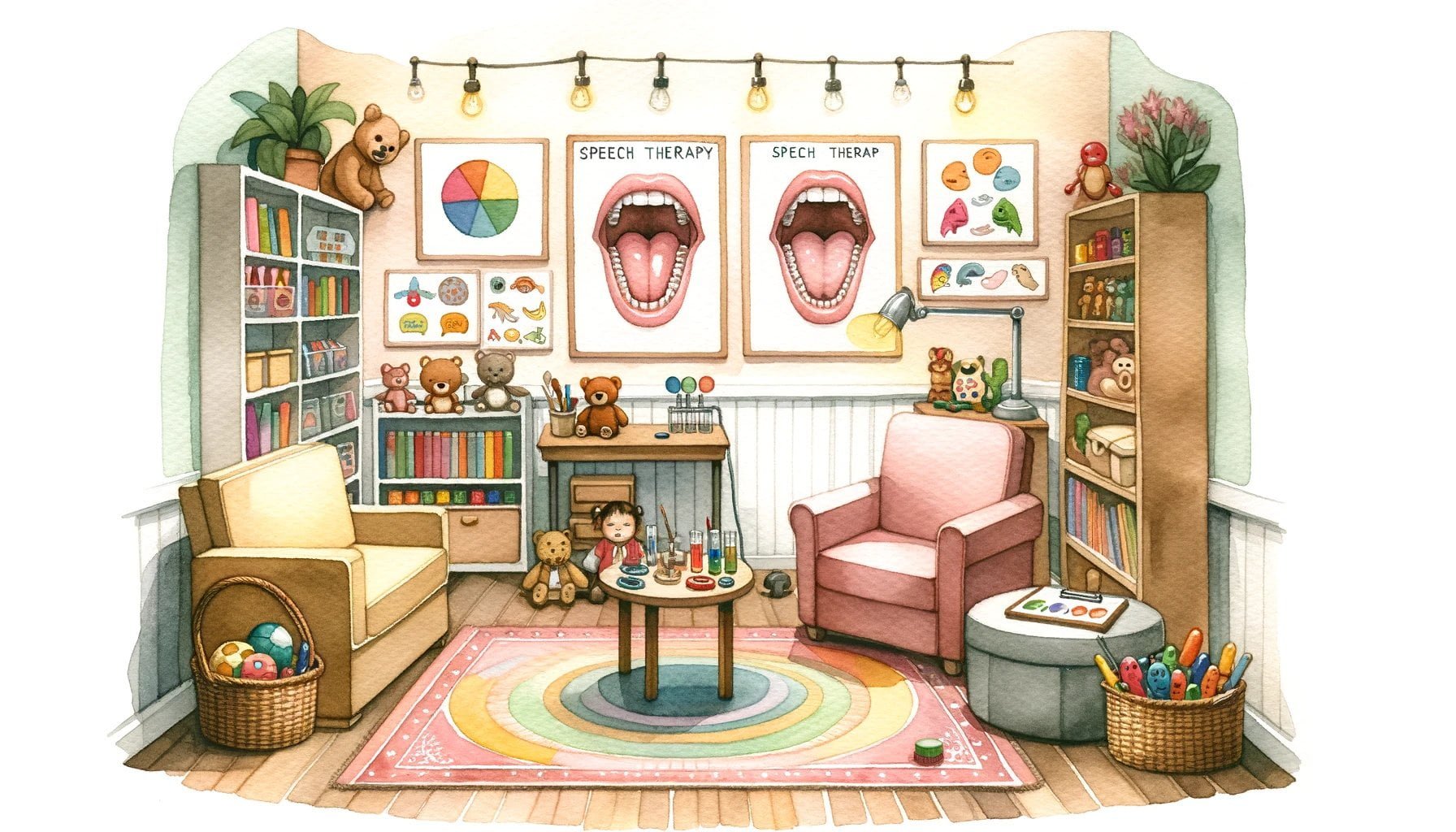Speech pathologists are the best at helping with communication issues. These experts can help speech- and language-impaired people improve their communication and quality of life. Speech pathologists treat a variety of problems, including developmental delays, speech impairments, neurological conditions, and acquired traumas. This article will examine why people seek speech pathologists’ help and their crucial role in overcoming communication barriers.
Why do people see speech pathologists?
Speech pathologists help people communicate better and live better. Why do people consult speech pathologists? Let’s examine the reasons people see speech pathologists.
Developmental Delays and Disorders
People often see speech pathologists for developmental delays or abnormalities. These can make it hard for kids to communicate, understand, or stutter. Speech pathologists diagnose and treat these disorders, helping youngsters improve their communication.
Neurological conditions and acquired injuries
Speech pathologists help neurological and acquired injury patients. Cerebral palsy, dementia, and stroke can impair communication. Speech and language problems can result from acquired brain damage. Speech pathologists assess communication and swallowing skills, diagnose underlying issues, and provide individualized treatment plans to improve communication.
Speech and language disorders
Speech pathologists treat language and speech impairments. Speech pathologists can identify and treat lisps, stutters, and tongue-and-throat disorders. Therapy and focused interventions help people overcome speech impairments and communicate better.
Assisting with Other Health Conditions
Speech pathologists aid people with various illnesses. Communication and swallowing can be difficult for those with hearing loss, intellectual disability, autism spectrum disorder, and other issues. Speech pathologists provide assistance, therapy, and techniques to improve communication and ensure people can express themselves.
Expertise and Therapy
Speech pathologists offer crucial advice and treatment. They can design effective treatment programs to meet specific needs because of their extensive knowledge of communication and swallowing difficulties. Speech pathologists use articulation exercises and other approaches to help people communicate.
Professional Credentials and Impact
Becoming a speech pathologist takes devotion and study. Students in this field usually receive a bachelor’s or master’s degree, pass license examinations, and complete clinical hours. These intensive trainings equip speech pathologists to care for and support their clients.
Speech pathologists have a huge impact. Speech pathologists help people communicate, connect, and live better by removing communication barriers. Their work promotes independence, confidence, and well-being.
Speech pathologists are seen for many reasons. Speech pathologists diagnose and treat language, swallowing, and communication difficulties from developmental delays, speech disorders, neurological diseases, and acquired traumas. Their expertise, individualized treatment programs, and therapy help people communicate and navigate the world. Speech pathologists improve the lives of people with speech and language disorders through devotion and compassion.
If you’re curious to learn some fascinating speech pathology facts, click here to discover intriguing insights about this field!
Acquired Injuries Impacting Speech and Language
Human contact requires communication to express thoughts, feelings, and wants. However, some acquired impairments can severely impair speech and language, making communication difficult. Speech pathologists help such people enhance their communication and quality of life.
Understanding Acquired Injuries
Brain injuries can be caused by accidents, strokes, infections, or tumors. Such injuries can severely impair communication. After an accident, speech, language, and communication impairments often develop. How these issues manifest depends on the brain area impacted.
The Role of Speech Pathologists
Speech-language pathologists diagnose, assess, and treat communication and swallowing difficulties. They work with injured people to improve their speech, understanding, and expression.
Speech and Language Problems After Acquired Brain Injuries
Meningitis and septicemia, which can cause speech and language impairments, are common causes of acquired brain damage. Brain damage can impair swallowing and communication, making daily tasks harder. People may have trouble speaking, writing, interpreting language, or reading.
Aphasia: A Language Disorder Resulting from Brain Injury
Brain injuries, such as strokes, can produce aphasia, an acquired language problem. It impairs speech and comprehension. Speech pathologists assess and treat aphasia patients using various methods to enhance language abilities.
Cognitive Communication Difficulties in Traumatic Brain Injury Patients
TBI sufferers often have cognitive-communication issues. These issues can affect attention, memory, problem-solving, and socialization. By managing cognitive-communication problems, speech pathologists help TBI patients receive interdisciplinary care.
Speech Deficits and Apraxia of Speech
An acquired brain injury can cause speech problems, including apraxia. Motor speech disorder (AOS) causes problems planning and synchronizing speech movements. Speech pathologists help AOS patients enhance their speech output with tailored therapy.
Emphasizing Resilience in Speech-Language Pathology
In acquired brain injury treatment, resilience is important. SLPs know how important it is to help people restore their communication abilities. Through continual assistance, tailored therapy programs, and a supportive environment, they help people overcome their issues.
Speech Pathology in Interdisciplinary Care
Speech-language pathology is essential to interdisciplinary brain injury care. Speech pathologists collaborate with occupational therapists and other healthcare providers to provide comprehensive and holistic therapy for communication disorders. Speech pathologists improve rehabilitation and social integration by addressing these people’s communication requirements.
Communication Challenges in Children with Head Injuries
Injury can also cause communication difficulties in youngsters. Accidental or traumatic head injuries in children can cause speech and language problems. Speech pathologists assess and treat these children, helping them improve their communication and reach developmental milestones.
In conclusion, acquired injuries can severely impair communication. Speech pathologists treat people with acquired injuries with speech and language issues. Their diagnosis, assessment, and treatment of communication and swallowing issues help people express themselves, restore communication skills, and improve their quality of life.
Improving Quality of Life Through Specialized Therapy
As someone who has always been fascinated by speech pathologists’ role in improving communication skills and quality of life for those with speech and language difficulties, I know how much specialized therapy can improve lives. This article will discuss why people seek speech pathologists’ help and how they might improve communication difficulties’ quality of life.
Why seek the help of speech pathologists?
Many people find that seeing a speech pathologist improves their communication and well-being. SLPs, or speech-language pathologists, are highly trained professionals who assess and treat communication and speech issues. They know how to diagnose communication issues and create customized treatment approaches.
Developmental delays and speech disorders
People seek speech pathologists when they or their loved ones have developmental delays or speech difficulties. Children may have trouble articulating words, constructing sentences, understanding language, reading, and writing. Working with speech pathologists, children can get tailored therapy to overcome these obstacles and enhance their quality of life.
Neurological conditions and acquired injuries
In interdisciplinary neurogenic communication disorder management, speech pathologists are important. Acquired injuries like brain traumas can cause speech and language problems. This can affect articulation, sentence structure, language comprehension, reading, and writing.
Speech pathologists diagnose and treat language disorders like aphasia, which can stem from brain damage, with other healthcare specialists. Traumatic brain injury patients with cognitive-communication issues receive intensive support. Speech pathologists restore communication and quality of life through specialized therapy.
Enhancing Quality of Life in Various Settings
Understanding that speech pathology goes beyond clinical settings is crucial. Speech therapy helps nursing home residents and hospice patients. Speech pathologists help nursing home residents enhance their relationships and communication, improving their quality of life. Hospice patients’ well-being is improved by speech therapy.
Finding a Speech Pathologist
If you or someone you know needs a speech pathologist, there are many options. Referrals from healthcare professionals and reputable individuals who have worked with speech pathologists can be helpful. You can also find skilled and recognized speech-language pathologists by looking through professional organizations.
Conclusion
Speech pathologists help people with communication issues live better. They treat developmental delays, speech difficulties, neurological diseases, and acquired injuries with specialized therapy. Speech pathologists help clients improve their communication, independence, and well-being by addressing these problems. Reaching out to a speech pathologist can improve quality of life through specialized therapy for communication issues.
FAQ
Question 1
Why do individuals seek the expertise of speech pathologists?
Answer 1
Individuals seek the expertise of speech pathologists to improve their communication skills and quality of life, especially when facing speech and language difficulties due to conditions such as developmental delays, speech disorders, neurological conditions, and acquired injuries.
Question 2
What communication problems can speech pathologists assess and treat after a brain injury?
Answer 2
Speech pathologists, along with occupational therapists, can assess and treat communication problems such as speech, language, and communication difficulties that arise after a brain injury.
Question 3
Can meningitis and septicemia cause speech and language problems?
Answer 3
Yes, meningitis and septicaemia can be causes of acquired brain injury (ABI), leading to speech and language problems that may require the expertise of speech pathologists.
Question 4
How can acquired brain injuries affect communication and swallowing abilities?
Answer 4
Acquired brain injuries can impact a person’s communication and swallowing abilities, requiring assessment and treatment by speech pathologists and other healthcare professionals.
Question 5
What is aphasia, and how can it result from a brain injury?
Answer 5
Aphasia is an acquired language disorder that can occur as a result of a brain injury, particularly a stroke. Speech pathologists play a crucial role in diagnosing, assessing, and treating aphasia in individuals with brain injuries.
- Unlock 6000+ words beginning with he: A comprehensive analysis - April 20, 2025
- Mastering -al Words: A Complete Guide - April 20, 2025
- Master Scrabble: High-Scoring BAR Words Now - April 20, 2025


















